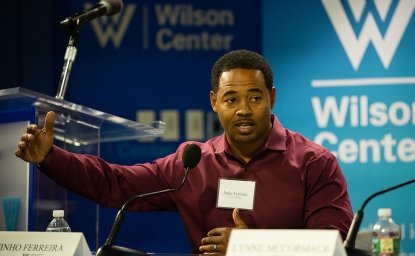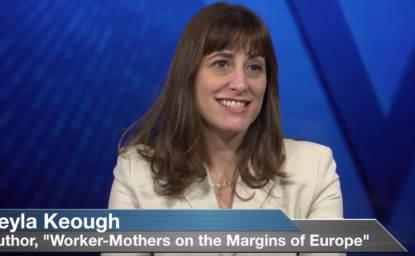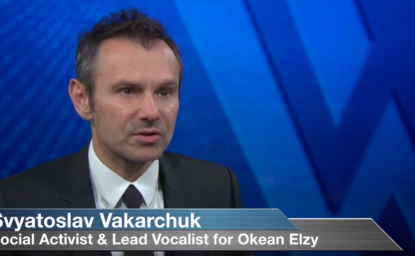The Arab Spring has not spread evenly, and the Kingdom of Bahrain is one place where a government "crackdown" has slowed the transformative wave of protests sweeping through much of the region. But activists on the ground, such as
Nabeel Rajab, president of the Bahrain Center for Human Rights, continue the struggle in spite of government intimidation. In recognition of his efforts, Rajab is recipient of the 2011 Ion Ratiu Democracy Award, intended to both honor and encourage democracy activists. He recently traveled to Washington, DC to recieve the award during a ceremony at the Wilson Center. We took the opportunity to speak to him about his work, and also with
Indrei Ratiu about the award presented in his late father's name and about the selection of Nabeel Rajab.
Indrei Ratiu is vice president of the Ratiu Center for Democracy. The Ion Ratiu Democracy Award is presented annually and is intended to bring visibility and recognition to the ideas and accomplishments of individuals around the world who are working on behalf of decmocracy. The award is supported by the
Ratiu Family Charitable Foundation and the
Ratiu Center for Democracy.
Nabeel Rajab is president and co-founder of the Bahrain Center for Human Rights. He also serves as deputy secretary general for the International Federation for Human Rights and as the chairperson of CARAM-Asia.









